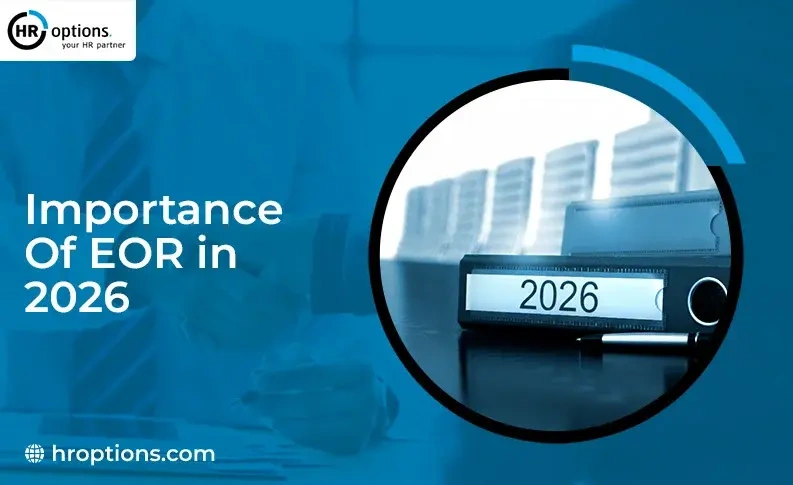When you’re thinking about hiring people from other countries, you’re managing payroll, taxes, legal requirements, and regulations. You might not even fully understand some of these, which can make it challenging.
But that’s where EOR (Employer of Record) services and COR (Contractor of Record) come in. These two services help you take care of the heavy lifting. However, they’re designed for different situations.
- EOR: Helps manage everything from payroll and taxes to compliance.
- COR: If you’re working with contractors, this makes sure contracts and payments go smoothly.
Let’s break both of these down and figure out which one makes the most sense for your business needs.
What is EOR?
An EOR (Employer of Record) is a third-party service. It is in charge of handling the official employer duties when you hire people in another country.
The EOR becomes the “legal” employer. However, you can still manage the employees’ day-to-day work. The EOR takes care of all the behind-the-scenes things like payroll, taxes, and making sure you’re following all the local laws.
In simple words, with an EOR you get to hire people from a different country without the hassle of setting up a whole new office or company in that location.
Here’s what the EOR does:
- Payroll and Taxes: They handle paying your employees. You can rest assured all tax deductions are done correctly.
- Benefits: They take care of the benefits like health insurance, retirement plans, and any other perks your employees need.
- Compliance: They make sure everything you’re doing is in line with the local laws of the country where your employees work.
- Legal Responsibility: If there are any legal issues, the EOR takes on that responsibility.
When hiring employees internationally, an EOR takes care of all the legal, financial, or compliance details.
What is COR?
A COR (Contractor of Record) is a little different. If you’re hiring contractors, not full-time employees, then you’ll want a COR. The COR manages the admin work: paying contractors, filing taxes, and making sure everything’s compliant with local laws. But the contractor remains independent and doesn’t get benefits like regular employees do. The COR doesn’t take on the same level of responsibility as an EOR. Contractors are on their own, and the COR simply handles the logistics.
What a COR does for you:
- Payment: The COR ensures contractors get paid and everything is processed smoothly.
- Tax Compliance: They handle tax filings and make sure everything’s in order for the contractor.
- Legal Compliance: The COR ensures contractors follow local laws. But no benefits come with this setup.
So, if you’re hiring freelancers for short-term work, a COR is the way to go. It’s a more straightforward option and keeps everything simple.
How Do EOR and COR Compare?
Let’s compare EOR and COR side by side, so you can quickly see how they match up.
| Factor | EOR (Employer of Record) | COR (Contractor of Record) |
|---|---|---|
| Worker Type | Full-time employees | Independent contractors or freelancers |
| Employer Responsibility | EOR is the legal employer | COR is the legal employer for contractors |
| Benefits | Provides employee benefits like health insurance | No employee benefits provided |
| Payroll Handling | Manages payroll and taxes | Handles contractor payments and taxes |
| Tax Compliance | Takes care of tax filings and deductions | Ensures contractor tax filings and compliance |
| Global Expansion | Supports global employee expansion | Limited to countries where independent contractors can operate |
| Work Structure | Full-time, long-term employees working under your company | Short-term or project-based contractors |
What’s Right for Your Business?
Now that we know what both services do, the next question is: what’s best for your business?
If you’re hiring full-time employees, especially internationally, then an EOR is a good choice. The EOR handles all the tricky stuff, payroll, taxes, benefits, and compliance, while you focus on what your employees are doing. It makes things way easier when you’re hiring in another country.
If you’re hiring contractors, then COR is the way to go. Contractors are self-employed, so you don’t have to worry about providing benefits. The COR handles the pay, taxes, and compliance, but it’s much simpler than managing full-time employees.
Some businesses use both services: EOR for full-time employees and COR for contractors. That way, you get the best of both worlds.
Conclusion
When it comes to hiring people internationally, choosing between EOR and COR comes down to what you need. If you’re bringing on full-time employees, especially across borders, an EOR is the way to go. But if you’re working with contractors, COR makes things easier.
At HR Options, we offer both services and can help you decide what works best for your team. Get in touch with us today, and we’ll make sure you’re on the right track for building your global team.








